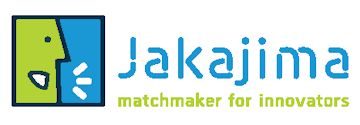The adoption of 3D printing in the food industry is transforming the sector by offering possibilities to create customizable food designs, personalized nutrition, and alleviate limitations on the food supply. Consequently, there has been an increasing focus on material research for creating 3D printing inks. Soy Protein Isolate (SPI) is a printing material that has received much attention owing to its high nutritional value, good water-holding capacity, and gel-forming properties.
 | 4 December 2024 |  |
|||||
However, the printing of SPI gels alone poses the challenge of high viscosity or generally unsuitable rheological properties, emphasizing the need for modification strategies such as the incorporation of hydrocolloids, which increases the chances of compromising the nutritional value and resulting in more complex inks.
In our study, food inks for 3D printing were developed using SPI gels blended with soluble and insoluble dietary fibers (psyllium husk, apple, wheat, and oat dietary fibers) in a simple, two-ingredient ink formulation. A high nutritional value is guaranteed by fiber incorporation, which increases its potential for direct food applications. In addition, the type and source of fiber, concentration, particle size distribution, and shape were utilized to elicit varying interactions between proteins and polysaccharides.
Consequently, the printability of the inks was impacted and correlated with the interactions present in the inks, and the printability of the inks was assessed by extrudability, resolution(qualitatively) and dimensional analysis using a MATLAB algorithm for image analysis. The incorporation of fibers, especially psyllium husk fibers possessed the best printability evidenced by increased smoothness and more than four-fold increase in mechanical integrity according to the texture analysis.
An understanding of these interactions and their relationship with printability offers the potential to design more complex protein-polysaccharide-based food inks with high nutritional value. In the future, based on this understanding, more complex proteins obtained from food side streams, such as zein, can be valorized through 3D food printing.
Authors: Addo, Esther; Wild, Sarah; Fahmy, Ahmed; Jekle, Mario, presented by Esther Addo, PhD student at the University of Hohenheim.
Esther is driven by her curiosity to know and understand the underlying reasons behind phenomena in nature, and as emerging technologies / trends see thinks that 3D food printing, Artificial Intelligence(AI), Internet of Things (IoT), and Robotics have the greatest potential.
About Esther Addo
I am a Ghanaian and grew up in Kumasi, Ghana. My basic education and first degree (BSc. Biomedical Engineering) were driven my curiosity about science and how the body generally works. I pursued this same passion to obtain a masters’ degree in Biofabrication from 2018 to 2021 at University of Bayreuth, Germany. Currently, I am doing a PhD in 3D food printing of protein-polysaccharide food inks at the University of Hohenheim with Prof. Dr. Mario Jekle.
About University of Hohenheim, Department of Plant-based Foods -University of Hohenheim
The Department of Plant-based Foods investigates the extraction and functionalization of ingredients from plants. Fractionation and isolation processes of plant-based raw materials in our pilot plant are followed by functionalization and structurization approaches by established and emerging processes. Thus, high-quality foods can be achieved.
Supported by our comprehensive analytical methodologies, we are developing knowledge and expertise to specifically design safe and clean-label foods. This means we can simply combine specific plant-based material with engineering approaches to design foods. To achieve this aim, we develop innovative processes such as additive manufacturing (food 3D printing). We combine our scientific approach with our experience in knowledge transfer to the food industry to enable the development of innovative technologies and products. Click here for more information.
Esther Addo will speak at the 2023 edition of the Agrifood Innovation Event in the 3D Food Printing session.

